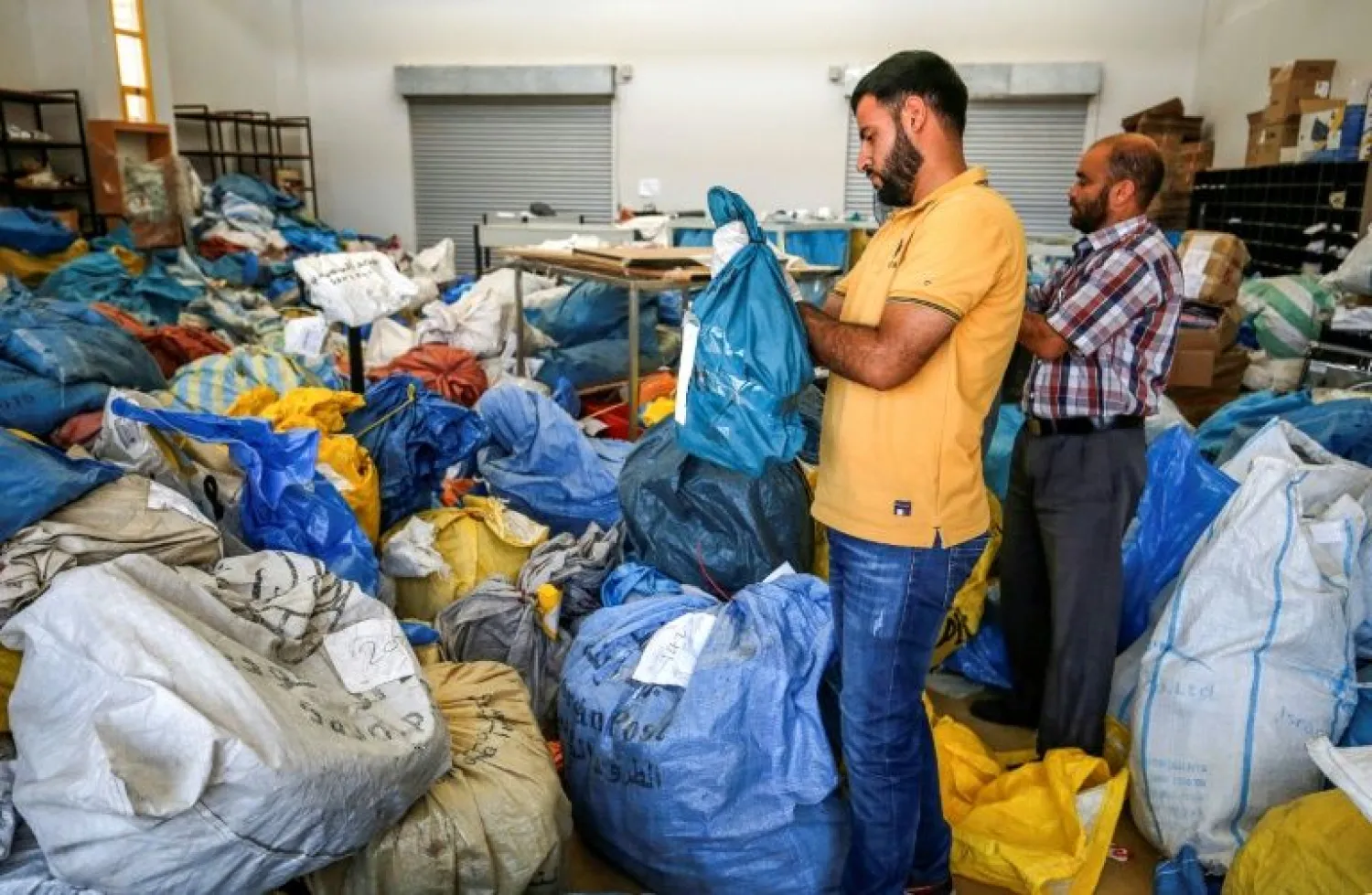Palestinian postal service employees are working overtime to sort through some 10 tons of letters and packages blocked by Israel for up to eight years, Palestinian officials said Tuesday.
The parcels, dating from between 2010 and this year, had been prevented by Israel from entering the West Bank via Jordan but were released in a one-time deal, the officials said.
The goods range from simple letters to medicine and even wheelchairs for the disabled, AFP journalists found at the sorting center in the occupied West Bank city of Jericho.
Palestinian Telecommunications Minister Allam Mousa accused Israel in a statement of having blocked the delivery and of delaying the implementation of an agreement on postal services.
Israeli authorities confirmed the packages had been transferred and said an agreement was in the works, but did not comment in detail.
Ramadan Ghazawi, an official at the sorting center in Jericho, said he understood some items had been blocked for security reasons, while others were barred on administrative grounds.
"A few days ago Israel allowed more than 10 tons of postal parcels that were stuck in Jordan," he told AFP.
He said it would take his staff another two weeks to sort through all the parcels and get them delivered to their recipients.
Israel controls all entrances and exits to the West Bank and can prevent goods passing through as it sees fit.
Palestinian officials say such control cripples their economy and freedom of movement.
In the sorting center, hundreds of bags were piled on top of each other as workers picked through them in the stifling summer heat.
Ghazawi said that the parcels and letters, mostly the former, had been sent from all over the world.
Many were goods ordered online by Palestinians that never arrived.
A note attached to a wheelchair said it was sent from Turkey in 2015 and meant to be delivered to the Gaza Strip.
COGAT, the Israeli defense ministry body responsible for civilian coordination in the Palestinian territories, said the release was part of confidence building measures after the two sides agreed on a postal entry deal "about a year ago".
It said while the deal had not yet gone into force for future deliveries, it had "allowed a one-time transfer of approximately ten and a half tons of mail that had been held in Jordan".
Some of the transferred goods had been broken, and Ghazawi said that to avoid complaints they were delivering them along with a statement saying Israeli authorities had delivered them in this condition.









